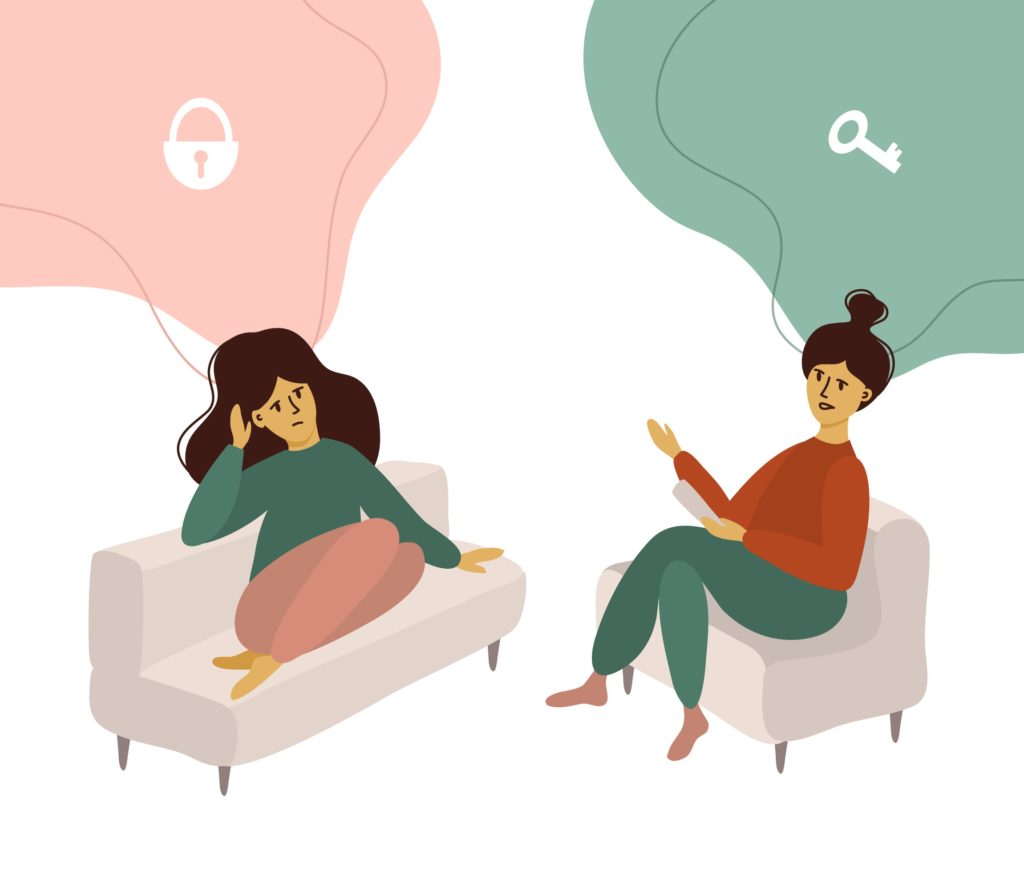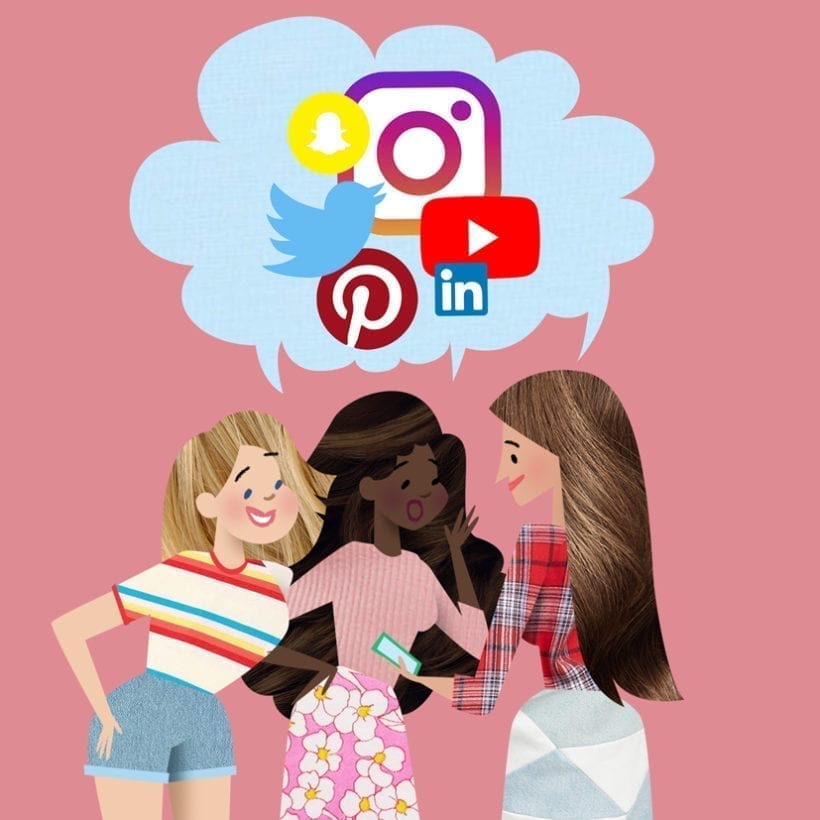We have friends for a reason, a season or a lifetime,’ the phrase goes but sometimes these friendships don’t end in the best possible way. You may have heard the word ‘ghosting’ used to talk about romantic partners disappearing off the face of the earth without even a text but friends choosing to cease all communication without explanation happens too.
“In today’s society, ghosting in friendships is very common,” Consultant Psychologist Dr. Elena Touroni notes. It’s natural for some friendships to naturally fizzle but an abrupt ending normally comes down to two factors. “It’s normally a fear of confrontation and lack of self-awareness,” Performance and Confidence Coach Olivia James highlights.
It’s an upsetting and painful experience but one that can be processed. In fact, in the long run, it can improve our friendships and strengthen our boundaries.
Why does being ghosted by a friend hurt so bad?

Much like romantic ghosting, a friendship rejection can really hurt. It’s a form of trauma and it takes time to grieve and process this loss. It stings hard because being ghosted by a friend can make us question ourselves and what we have to offer. “We gain a lot of self-esteem from our friendships because they make us feel likable and loved. When there is a rejection, we question that,” Dr. Touroni explains.
It can also reactivate past psychological wounds. “It plays on the inner critic we all have,” James explained. “For example, the voice in our head which says: ‘I knew I was no good, they have confirmed it’”. “It can really knock our confidence and bring up feelings of unworthiness and shame,” she adds. Plus, it can raise feelings of resentment and betrayal, both difficult emotions to process and let go of.
When a friend seemingly disappears into thin air, it’s normal to go over and over in your head about what might have caused it. “Rumination can drive us mad,” James says.
How to respond
If a friend disappears without any explanation, the default is often to send an angry or emotional message. However, this will never help the situation. It’s better to take the high road. “Try to come from a place of self-respect,” Touroni suggests. “Make sure you don’t come across as pushy, but rather tap into the thoughtful side of you that wants to understand what happened,” she adds.
If you are struggling to contact a friend or they haven’t responded to a string of messages over a long period, you could try one last message giving your friend a chance to respond. James advises approaching them from a point of neutrality, naming the pattern you have noticed and asking the question. She gives the example of a simple message along the lines of: “I haven’t heard from you for a while and wondered if you wanted to keep this friendship going.”

If the silence continues, you need to respect their decision and make peace with it. “Remember however close you were to this person, you never really know what is going on in someone’s life,” Thomas says. Importantly, you must try and not take it personally. “Remind yourself that just because someone has made this decision, it doesn’t mean anything about you as a person,” Tourini concurs.
It can be easy to over analyse why this has happened, but like at the end of a romantic break-up, it is often hard to get to the bottom of what really went wrong. “Try and get to a place where you’re OK with not knowing,” Thomas says. “People have all sorts of reasons for making decisions, and are influenced by all kinds of experiences, emotions and difficulties,” Tourini adds.
Use this time to reevaluate your views on friendships
Instead of wallowing, try and pour your energy into other friends in your life. “Meet your need for connection by reaching out to people in your life that care about you and help you feel important,” Tourini says.
Falling out with friends can sometimes be a good point to take a step back and consider what is important to you in your friendships, and consider what you want in a friend moving forward. While you may be hurting from the rejection of being ghosted by a friend, it may transpire with a time that the friend was not necessarily well suited to serving your needs. It can be easy to wonder what we did wrong but it may not even be because of you. By working on your inner dialogue, you can find ways to make moving forward a bit easier.
Try to See the Other Person’s POV
You may have never thought about ghosting a friend before, but it might be helpful to understand why someone else did. Although the situation is tough, ghosting friends is never done without reason. By understanding your friend’s perspective, you may be able to find closure in knowing that it wasn’t your fault. A lot of times it can be due to an issue that the other person was dealing with and had nothing to do with you. Regardless of the cause, ghosting friends isn’t fair. However, understanding their point of view can potentially help you to move forward.
Let go and gain closure

Talking to someone — a therapist or friend separate from the situation — can help you process the experience. Saying the feelings out loud can help slow the spinning in your head. Journaling about your feelings — scribbling out how you feel — may also help. Take some time to focus on yourself and to build self-care rituals.
It’s important not to dwell too much on it. “There are certain situations in life that you just can’t change, so by accepting them for what they are, we can gain some closure,” Tourina says.
“Be wary of any behaviors you may be doing which could be keeping the drama alive. Maybe you’re overthinking the situation or discussing it over and over again. At some point, you need to decide to draw a line under it and let it go,” she adds.







